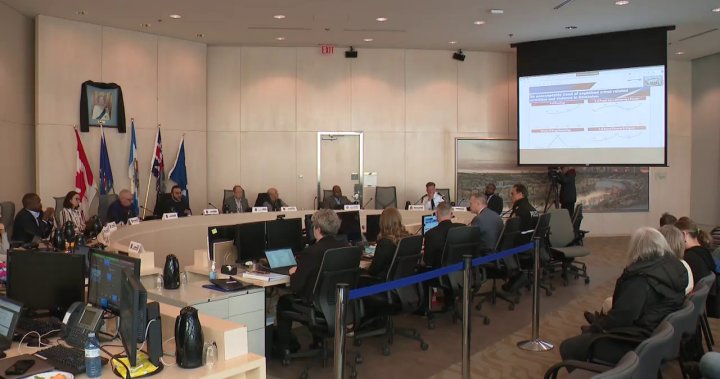John McDougall, chair of the Edmonton Police Commission, plans to fulfill the remainder of his term from Portugal, asserting that his physical location will not impede his ability to perform his duties. McDougall’s decision has sparked controversy, with some questioning the efficacy of remote participation in such a critical role. This extended analysis delves into the arguments surrounding McDougall’s decision, examining the perspectives of both McDougall and those who express concern.
McDougall defends his choice by emphasizing his continued commitment to the city and the police commission. He argues that modern technology, specifically video conferencing tools like Zoom, enables effective participation regardless of geographical location. He points out that other commissioners have participated remotely throughout the year from various locations, demonstrating the feasibility of virtual engagement. Furthermore, McDougall highlights that he has informed the public safety minister’s office of his relocation, and they have expressed no objections. He maintains that his personal life should not interfere with his commitment to the commission, stressing that he would return to Edmonton for any significant events requiring physical presence. McDougall also notes that he has no intention of seeking the chair position again, further emphasizing his dedication to fulfilling his current term, albeit remotely.
Conversely, critics like Tom Engel, chair of the policing committee for the Criminal Trial Lawyers’ Association, argue that virtual participation is a poor substitute for in-person engagement. Engel emphasizes the importance of face-to-face interactions with citizens and police officers, suggesting that vital nuances of communication are lost in a virtual setting. He questions McDougall’s ability to remain adequately informed about local events and concerns while residing abroad, raising doubts about the effectiveness of his contributions from Portugal. The core of Engel’s argument centers on the inherent limitations of remote communication and the potential disconnect from the local context that physical absence creates.
McDougall’s decision highlights the evolving nature of work and the increasing reliance on technology for remote collaboration. While he maintains that his commitment remains unwavering, his critics argue that physical presence is crucial for effectively fulfilling the responsibilities of a police commissioner. This raises fundamental questions about the balance between flexibility and the need for direct engagement in roles that involve significant community interaction. The debate surrounding McDougall’s decision reflects a broader societal discussion about the role of technology in shaping our professional lives and its potential impact on traditional notions of workplace presence.
The situation is further complicated by apparent miscommunication between McDougall and Alberta’s public safety minister, Mike Ellis. Ellis stated that his understanding was that McDougall would only move to Portugal after completing his term. This discrepancy underscores the importance of clear communication and transparency in public service roles. The differing accounts of McDougall and Ellis raise questions about the thoroughness of the communication between the two parties and the potential implications of such misunderstandings for public trust and accountability.
Commissioner Irfan Chaudry’s perspective adds another layer to the discussion. While he refrains from commenting specifically on McDougall’s situation, he acknowledges the commission’s increasing reliance on Zoom throughout his term. This suggests a growing acceptance of remote participation within the commission, potentially supporting McDougall’s argument about the feasibility of virtual engagement. However, Chaudry’s emphasis on the importance of participation and engagement, regardless of the method, highlights the core responsibility of commissioners to remain actively involved in the commission’s work.
The debate over McDougall’s decision to serve his term from Portugal raises several key considerations for the Edmonton Police Commission and other public bodies. It underscores the need for clear guidelines regarding remote participation, ensuring accountability and effective communication while leveraging the benefits of technology. Furthermore, it highlights the importance of transparent communication between public officials and the public they serve, preventing misunderstandings and maintaining public trust. Finally, this situation prompts a broader discussion about the evolving nature of work and the role of technology in shaping public service, requiring careful consideration of the balance between flexibility and the demands of public engagement.










